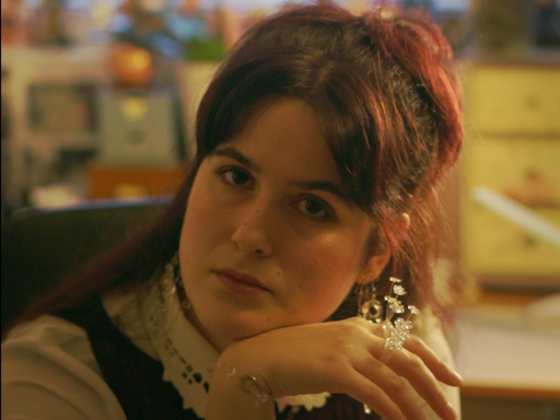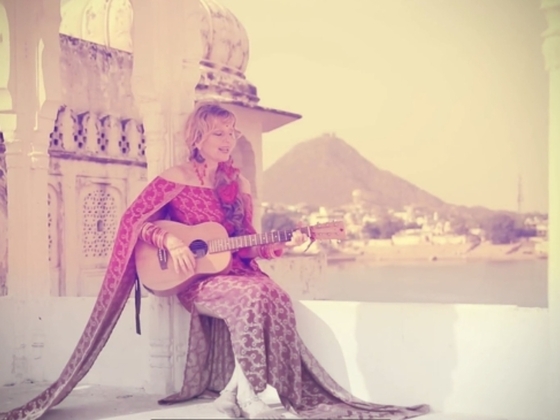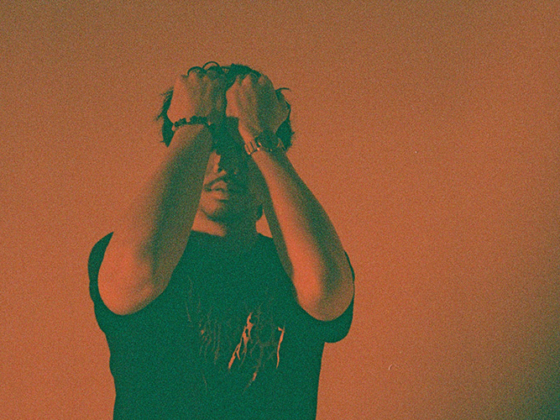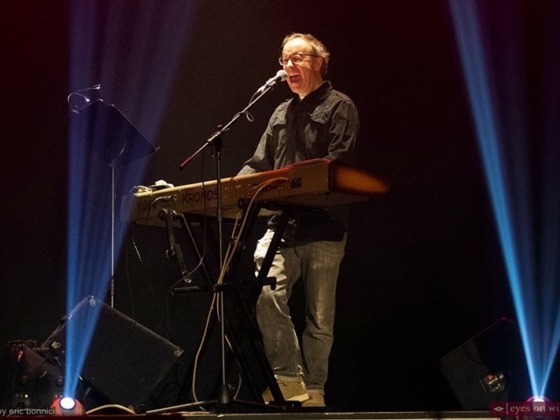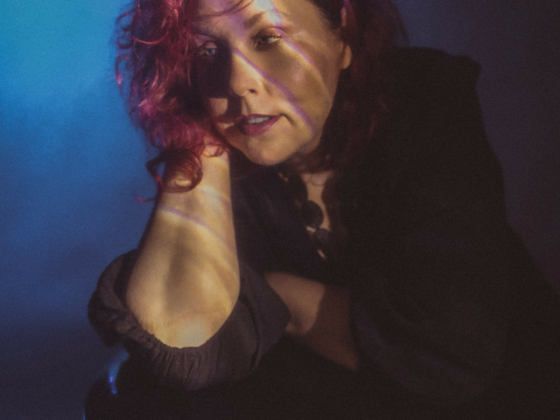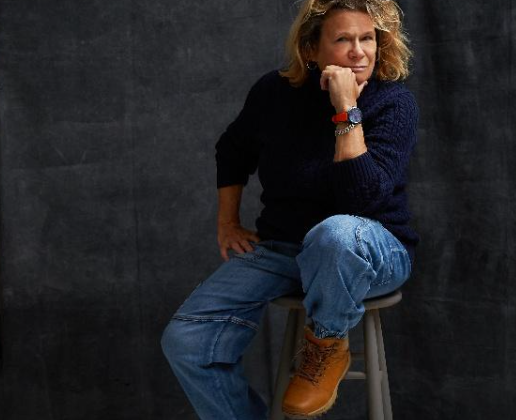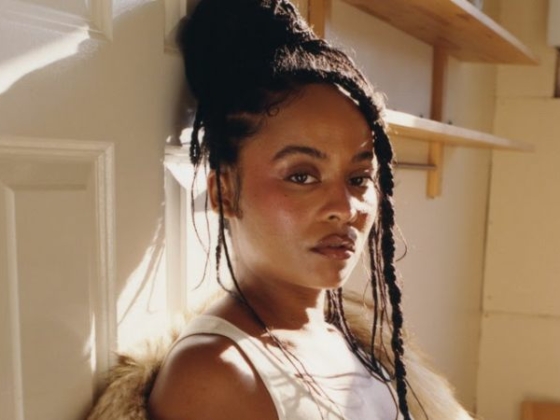Branko is a talented DJ and producer that hails from Portugal, and is a member of Buraka Som Sistema, a group that is in the leading forefront of a new movement dubbed 'Global Club Music.' Featuring influences from all over the world, the band, along with Branko in his solo career, have cultivated a style that takes on trends from Brazil, states in Africa, as well as various other styles all over the world.
The Lisbon-based artist has been everywhere recently. He released a stunningly magnificent release last year titled Drums, Slums, and Hums, his label Enchufada has been drawing attention all over the world, and he recently finished up his residency for BBC Radio 1's In New DJ's We Trust.
[soundcloud url="https://api.soundcloud.com/playlists/4373730" params="auto_play=false&hide_related=false&visual=true" width="100%" height="450" iframe="true" /]
On a more personal level, the music spoke to me in a way that music hadn't for a little while. The gritty raw feeling behind Branko's Drums, Slum, and Hums, left me obsessed with finding out more about his work, influences, and well… pretty much whatever I could find on the internet, I was devouring like a hungry infant. However, it became increasingly obvious that the more information I found, the more I really knew nothing about what was going on in Portugal. I did however, get a chance to hear things from the source itself, and what came about was a fantastic viewpoint of music from the talented artist.
If anything, his views on music have changed my own, and I'm very happy to be able to share this interview with EARMILK readers. Check out his thoughts on music, his EP, and his favorite artists below, and snag Control via Juno now!
EARMILK: Let's start from the very basic. I know absolutely nothing about the Portugal scene except that I completely fell in love with your mixtape last year Drums, Slums, and Hums, and then with Buraka Som Sistema, as well as your recent BBC Radio 1 residency. I want to know more though, and I definitely need help. Where would you say would be a good place to start? Who are the people I need to be scouring record stores and the internet for?
Branko: Overall I think Lisbon developed as a pretty multi cultural place with a unique geographic location. In terms of music I look at it as being in the center of a triangle that joins Angola and Cabo Verde, Brazil and London and this ends up translating to how people make music. It's never only one thing, it's always a mix of something. There's a lot of music circulating around Lisbon, but it's mostly an internet thing, soundcloud became the most important source of music around. It's a bit complicated to point the starting point for someone researching about music in Lisbon, mostly because this whole thing hasn't actually turned into a proper business yet, so things are just spread around and even I end up searching for music by going from one soundcloud to another by favorites or people they follow.
We've recently did an article for my label's website that also sums a lot of this stuff up.
EM: Can you explain a little bit about some of the African influenced genres/subgenres you find yourself listening to? Buraka did a lot to expose Kuduro, but I'm sure there is a lot more to know besides this. Hypothetically, if I just landed in Lisbon and want to spend a week immersed in the music world, where do I need to go, who am I seeing, and what am I doing?
B: When I was getting together music for my Radio 1 Residency I became more and more convinced that this is actually a worldwide movement. It's not just about Lisbon, or Africa. It's about the attitude of trying to bring a raw cultural element onto electronic dance music while keeping it fun and within a certain club format and create something unique. So for me it doesn't really make sense anymore to differentiate Lisbon from Lima, Mexico DF, Caracas or Johannesburg. We're all part of a moving train that shares the same attitude and goals, bpm's are different and the music is different but it needs to be bigger than that.
Unlike most genres or musical movements that start with a clear epicenter, this movement that I decided to start calling Global Club Music doesn't really have one, and that's actually one of the best things about it because it brings diversity, but it also makes it very difficult to have a sense of consistency and develop it. So apart from websites and blogs like Generation Bass or Enchufada, there's not really a way of 'experiencing' this, unless with a random club night that might some promoter might book.
So basically, If you wanted to immerse yourself in this music world you would have to visit a bunch of producers houses/studios. There are some nights and house parties. Enchufada does a party every two months at a club called Lux (Hard Ass Sessions) and there's some other things that randomly happen at another venue called Musicbox.
Personally I think this movement needs radio shows, journalists talking about it, it needs for people to look at it with the right perspective and generate an audience before anything else. Kuduro, Tarraxinha, Zouk Bass, Kizomba, Azonto, Funana, Tuki, 3Ball Guarachero, Cumbia, Juke, Bmore amongst others are all part of a larger family and people need to look at it that way.
[youtube]https://www.youtube.com/watch?v=4CkXhtw7UNk[/youtube]
EM: How do you incorporate your cultural influences into your live work with Buraka or in your DJ sets? Where do you see music heading for you and the culture that you greatly represent to the world? Can you tell me more about Enchufada and the goals you have with your label? What do you think that the success of Enchufada says about the future of tropical bass?
B: The world keeps on spinning and while a bunch of bearded dudes are reading Pitchfork and thinking they just discovered a new amazing act (not really!), there are actually 5000 kids raving to Tuki in Caracas. It doesn't echo around the as much as what happens with 'Western' music but that doesn't make it less real. It actually makes it more real and less virtual. The only way that usually works to get this message around is when you focus on the ghetto chic angle and that's what a lot of supposedly cool labels do to get this music around. Enchufada as never been about that, it's always been about just putting good electronic music with a cultural angle that we like available for everyone to get it. We don't ask people to go and listen to this new amazing AFRICAN act, we just ask people to go and listen to this amazing MUSIC. So it's actually good to see that this vision is paying off and that we're getting more and more people interested in a lot of amazing music that's just beyond what everyone is talking about on the internet.
At the same time cities like São Paulo and Mexico city are blowing up economically and this makes it possible for amazing things to happen in those places. Right now the most interesting electronic music festivals are happening in those places, mostly because the people who program big festivals aren't open minded, or don't trust their audiences enough to prioritise stuff like this, so everyone plays the same festivals in Europe and the US and these promoters have to come up with their own scene and make it appealing for paying customers.
Our goal has always been to put great music out. We focus on trying to get as much music with a different edge or spice to it and we have our own musical personality, so as long as there's great music out there that fits this profile we're gonna be here trying to put it out and establishing ourselves as a source of true interesting and fun global club music. It's easy to incorporate this both in Buraka and on my dj sets because this is who I am and this is my perspective on music. it's all part of a bigger bubble.
EM: Any artists in general that have greatly influenced you (that would surprise us)?
B: I've never been too focused on specific artists. it's always been more about setting goals and actually sitting down with friends or other artists and actually decide where I wan't to go musically. But anyway I rather focus on the future than on the past so here's a list of up and coming beat makers i'm really into right now:
[soundcloud url="https://api.soundcloud.com/tracks/115215331" params="auto_play=false&hide_related=false&visual=true" width="100%" height="450" iframe="true" /]
[soundcloud url="https://api.soundcloud.com/tracks/102396168" params="auto_play=false&hide_related=false&visual=true" width="100%" height="450" iframe="true" /]
[soundcloud url="https://api.soundcloud.com/tracks/129388706" params="auto_play=false&hide_related=false&visual=true" width="100%" height="450" iframe="true" /]
[soundcloud url="https://api.soundcloud.com/tracks/124496964" params="auto_play=false&hide_related=false&visual=true" width="100%" height="450" iframe="true" /]
[soundcloud url="https://api.soundcloud.com/playlists/27023795" params="auto_play=false&hide_related=false&visual=true" width="100%" height="450" iframe="true" /]
[soundcloud url="https://api.soundcloud.com/tracks/136466339" params="auto_play=false&hide_related=false&visual=true" width="100%" height="450" iframe="true" /]
[soundcloud url="https://api.soundcloud.com/tracks/135501669" params="auto_play=false&hide_related=false&visual=true" width="100%" height="450" iframe="true" /]
EM: Let's talk a little bit more about your EP, Control. Would you say this was a continuation to the previously released mixtape from last year, or is this more of a clean slate project?
B: It's definitely a continuation, maybe the focus just went a bit more towards the club, but I'm still applying the same formula. Which is basically absorb all these different scenes from across the planet that share this same attitude and try and create instrumentals that reflect them and use that as a starting point to try and put a song together. I don't know if it's because I grew up on regular commercial radio (my parents were never the biggest musical researchers), I'm really addicted to the song structure and format and that's how I got to songs like "Time Out" or "Control."
I'm also preparing volume 2 of Drums, Slums and Hums but I have no idea about when I'll be finished with it.
EM: Control also feels like a great combination of electronic music, while sticking to your roots. What would you say were your greatest difficulties in making this project?
B: The greatest difficulties on something like this for me is always managing time between, Buraka, the label and actually sitting down by myself and making music. I guess that's one of the reasons why all the tracks have featurings. It's not hard for me to manage my background and all these new musical movements together because that's just the way music naturally pops into my head.
EM: Any last minute advice for anyone trying to make an impact in music? Production or DJ tips?
B: There's not a lot I could say except for advising producers and dj to try and be original and creative. It's important not to follow the trends, because they won't get you anywhere new and exciting. Just try and find something you love and explore that.
EM: When are you taking over the North American continent with your amazing music?!
B: :) I've had the most amazing tour experiences with Buraka in North America, from Coachella to Igloofest or Osheaga, we always have great shows where I really feel a strong connection with the crowd because they can relate to it but still enjoy it as something new and different.
[youtube]https://www.youtube.com/watch?v=QktLpHvDFfI[/youtube]
But right now in terms of industry It feels like there's a bit of a hole in between super mainstream electronic music and all the mature super smart and complex electronic music, there's nothing in between. So, maybe like a year ago, we sort of decided to focus on Europe a little bit more. But the way things have been evolving I really feel like it’s not going to be too long before we go back to North America.
[youtube]https://www.youtube.com/watch?v=2zie09uSVRY[/youtube]
Thanks Branko! The insight is absolutely amazing! Can't wait to see you live when America is ready :).





